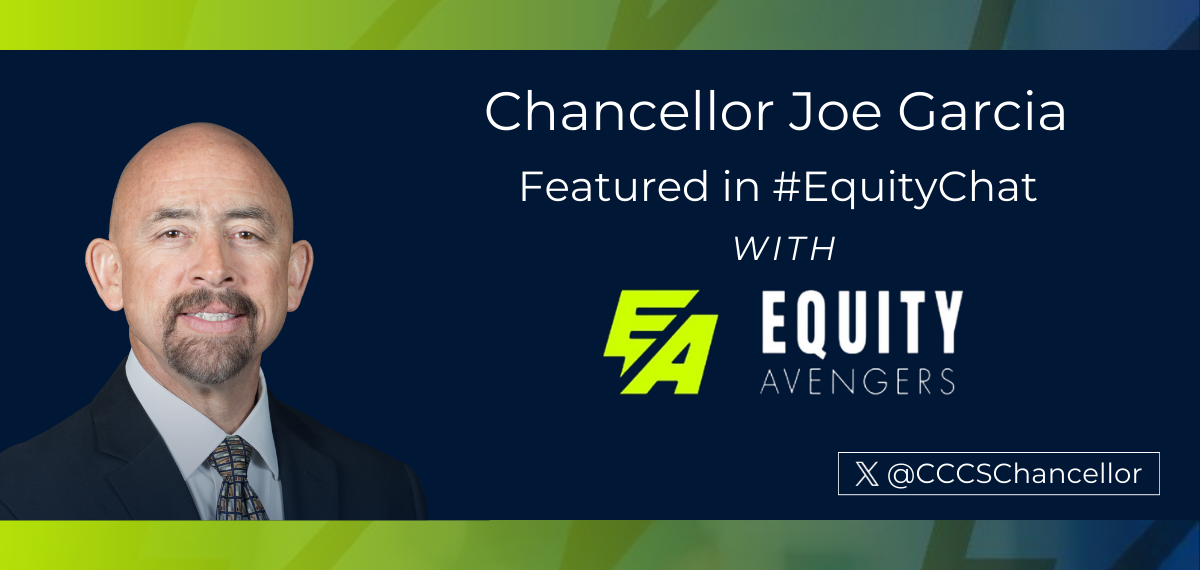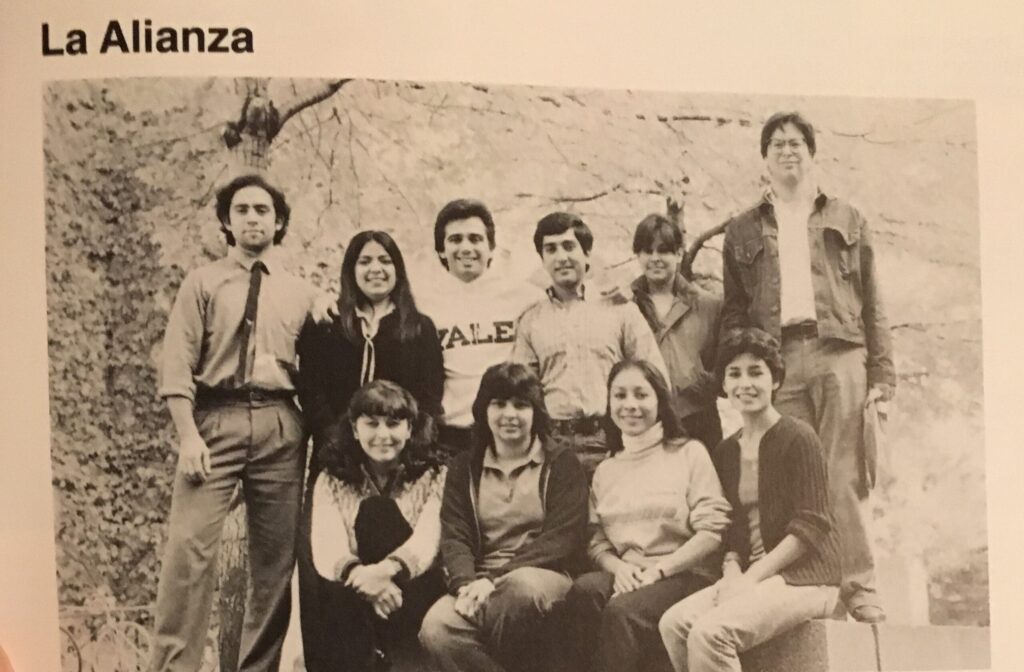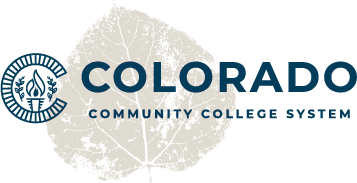CCCS News
Chancellor Garcia Featured in #EquityChat with Equity Avengers

Chancellor Garcia has dedicated his decades-long career to advancing equitable outcomes in education and workforce development. His journey started at the University of Colorado Boulder, where Garcia became a student activist focused on supporting his Hispanic peers. These early experiences inspired his passion for educational equity, leading Chancellor Garcia to a career in law, and later, higher education leadership.
His legacy caught the attention of the Equity Avengers, a group of higher education researchers and administrators who lead the charge for a more equitable higher education landscape. Last week, they invited Chancellor Garcia to join their popular #EquityChat on the X platform (formerly Twitter) for a wide-ranging discussion on workforce development, online education, and other emerging topics. Read the conversation in full below.
As you engage in equity-focused work, what is your walk-up song or anthem?
Kid Frost—Hispanic Causing Panic

Photo of Joe Garcia (back row, left) and other campus group members when they were students.
Through various roles, you have demonstrated leadership and commitment to advancing access and equity in higher education. Was there a defining moment or experience that catalyzed your journey?
Although I work in higher education today, I struggled to connect or believe I belonged in college. That changed when I joined a campus group dedicated to advancing Hispanic students. The experience inspired me to work harder, to go on to law school, and to dedicate my career to educational equity.
How have experiences from your previous roles, particularly in the public sector, informed how you approach and embed racial equity into your work and role as Chancellor?
As a public servant, I learned to listen to diverse groups and mobilize others around common goals. Those strategies have been key to leading our systemwide equity efforts, which require buy-in at all levels and functions. Being an unapologetic advocate for equity helps.
CCCS is one system powered by 13 independently led colleges. As Chancellor, how does this factor into how you prioritize higher education initiatives for the entire system?
As an open-access system, equity is the cornerstone of our work. We teach about 40% of all undergraduate students of color enrolled in college in Colorado! Every college contributes, and all share our goal of equitably serving diverse learners. We rely on data, and we monitor our progress continuously.
CCCS is the state’s largest provider of higher education and workforce training. Tell us more about how CCCS is supporting workforce development, and how these programs promote or center racial equity.
Across CCCS we offer thousands of career-connected programs—many of which are free for students—that align directly with high-wage, in-demand jobs. Our workforce development programs are focused on providing needed skills in critical industries and spur economic and social mobility.
Colorado Online is an enterprise-wide online learning model that’s the first of its kind in the nation. Can you tell us more about this model and how it supports student success and racial equity in the state?
Colorado Online combines virtual courses and programs from all 13 colleges with the goal of providing more options to students regardless of their location. This dramatically improves access and flexibility for all learners—many of whom are balancing school, work, and caregiving.
To do this work, we must continue learning and partnering with others. How do you educate yourself and who is informing your practice?
We are fortunate to have equity experts here at CCCS and at all our 13 colleges. Their commitment inspires me to keep pushing for progress. I also work closely with Complete College America and other equity-focused organizations like Hispanic Association of Colleges and Universities, the Lumina Foundation, and the Mexican American Legal Defense and Educational Fund.
We all have a vision of the future we want to live in. What is your freedom dream for higher education and what gives you hope for its future?
There has never been a shortage of talent, only a shortage of opportunity. We must work to ensure everyone can access affordable, high-quality education and training—and that starts with strong community colleges. I am heartened that more people are recognizing our value today.
The road to racial equity is long. How are you sustaining yourself? What practice would you recommend to other Equity Avengers?
With equity work, it’s important to find collaborators. I am blessed to be married to a strong Black woman academic who shares my values and commitment to students of color. I remind DEI leaders that we go farther together, and we can achieve our goals when we lean on each other.



